How to Build Trust with Clients and Business Partnerships
Trust is one of the most important assets that a project manager should have. Undoubtfully every project manager wants to gain the client’s, team member’s, and key project stakeholder’s confidence. Because without their reliance and support, a project can not be completed with flying colors. Therefore everybody tries to think of ways to earn it. On the other hand, it will be difficult to build confidence again if it is lost once. A Successful project manager is someone who is aware of the importance of building trust in the workplace environment. In this article, we will discuss how to build trust in your client and business partnerships.
Table of Contents
A Real-Life Example on How to Build Trust in Your Client Relationships
Before starting, let’s analyze the following real-life example. You assembled a kickoff meeting with your client and demonstrated how skilled you are. You made a good impression and the client trusted you.
The client was sure that you have both technical and soft skills – this is exactly what they need to complete the project successfully.
After three weeks your team started to complete some of the project tasks but the client has difficulties in connecting you through phone calls. Most of the time they could not reach you and they start to think that things are going bad regarding the deliverables. According to their criticism, you realized that they no longer seem to trust your words.
What has happened?
Trust is Vital at All Levels
Trust is a critical success factor in business and customer relationships. It is not something that you can easily buy from a supermarket. A shared purpose, expectations, and relationships bring people together. If the level of trust is low in a project, people will be reluctant to share their knowledge and experience. On the other hand, if the trust level is high, people will be eager to share more. Therefore, confidence-building is key to maintain strong relationships at all levels (Personal Level, Contractual Level, Industry Level, etc.) Another benefit of building trust is that it promotes happiness in the workplace environment.
Is There a Way to Formulate Trust?
The answer is “YES” according to David Maister, Charles Green, and Robert Galford, who is the author of “The Trusted Advisor”. This book discusses many significant points regarding trust relationships with clients. However, one of the most important contributions of “The Trusted Advisor” is the Trust Equation.
The Trust Equation is a formula that calculates trustworthiness by using four variables which are Credibility, Reliability, Intimacy, and Self-Orientation.
T = [ C+ R + I ] / S
T: Trust
C: Credibility
R: Reliability
I: Intimacy
S: Self Orientation
Credibility
Now, we need to talk about the importance of credibility in confidence-building. Credibility is one of the most important traits that any industry or individual must-have for success. As a project manager, if the client believes that you have the knowledge, skills, and expertise to deliver the product, they are sure that you are credible on the subject. Note that you can credibility over time depending on your proper actions.
Reliability
Reliability refers to how dependable you are. If you deliver your promises on time, you are a reliable person.
Intimacy
Intimacy is related to emotional safety. Intimacy can be at Professional, Personal and Private levels.
Self-Orientation
Self-orientation is related to personal focus. If your self-focus increases, your trustworthiness decrease. If other people think that you primarily concern yourself all the time without taking care of their requirements, they will not trust you.
Illustrated Example for Trust Equation
Up to this section, we discussed how to build trust in the workplace. Now we will analyze an illustrated example for the trust equation to provide a better understanding.
Assume that you are a procurement manager and your relationship with a key supplier might look something like the following:
- Credibility 7/10: The supplier is active in this industry for more than 30 years and completed many projects successfully.
- Reliability 8/10 – They supply materials in a timely manner and generate solutions when needed.
- Intimacy 7/10 – They know the strength, weaknesses, and bottlenecks of the project but do not talk about it anywhere else.
- Self-Orientation 5/10 – They take care of selling their products but they also recommend other types of products that they don’t have.
So the calculation will be as follows;
T = [ C+ R + I ] / S
T = [ 7+ 8 + 7 ] / 5 = 4.4
As shown in the formula, the higher score for three factors (C, R, I) refers to the higher level of trust where the higher score of Self-Orientation reduces the trust score.
The Trust Equation provides an approach to measure the trustworthiness of an individual or an organization. It may be useful for decision-making. However, while scoring each parameter, you need to be nonprejudicial.
How to Build Trust with Clients and Business Partnerships?
So, how to build trust in your client and business relationships? Here below are five steps to build trust;
- Engage with people through meetings, emails, and phone calls to build trust.
- Listen to others rather than talking all the time. Because listening builds credibility rather than speaking.
- Frame the concerns of clients or stakeholders in a way to demonstrate how well you understand them.
- Envision the power of collaboration and teamwork.
- Share your knowledge with your partner and client.
- Be always open to criticism. Thus everybody will make sure that you don’t hide anything.
- Commit what you need to do
Conclusion
Delivering a project on time and budget is important. However, without building trust in the workplace, you can not maintain strong relationships in business life. As a project manager, if you don’t’ trust your team members or the team members do not trust you, everything will be challenging and draining. Therefore, trust is essential to anybody because it increases the chance of success by improving collaboration. The same goes for project teams. When they feel comfortable, they will work more effectively as a team, rather than as individuals.
Everybody knows the importance of trust in the workplace, however, not everyone knows how to build trust in the workplace.
Do you think trust-building is important for project managers? How do you develop trust in your relationships? Share with us through the comments section.

Joe Hatten, PMP, CST, MBA works as an Agile Trainer and Coacht for AgileZilla where he provides training and coaching for organizations who are transitioning to Agile.

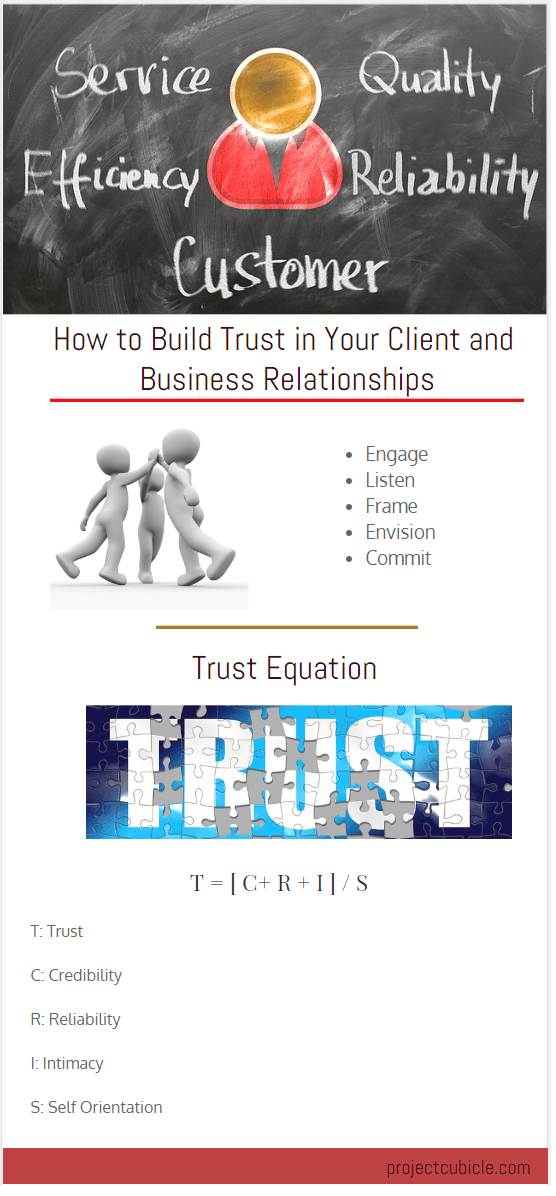

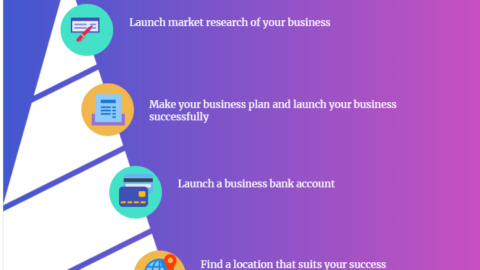


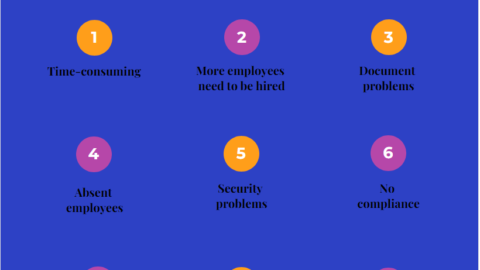

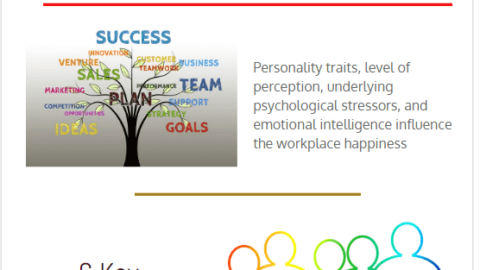
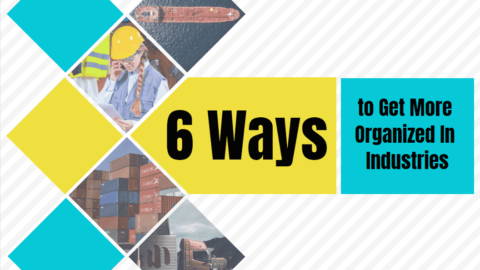

Gaining the trust of clients will surely bring more clients to our company as time passes. They will start recommending to company to their friends.
it can’t be a business without trust . it is too important to How to Build Trust in Client and Business Relationships
Trust is at the heart of any good relationship—whether business or social.In order to succeed, businesses have to build trust with clients. but…Creating trust is only one part of the equation; the other is nurturing and strengthening it.